The Jewish 'Friend' of the Dubai Prince: 'I Was Shocked When He Called Me'
How did the unique connection form between Moshe Shapoff from Jerusalem and Sheikh Ahmad bin Faisal from the United Arab Emirates? In a captivating conversation, Moshe shares about their acquaintance, the award he received, and the realization: 'One can sanctify Hashem's name anywhere.'
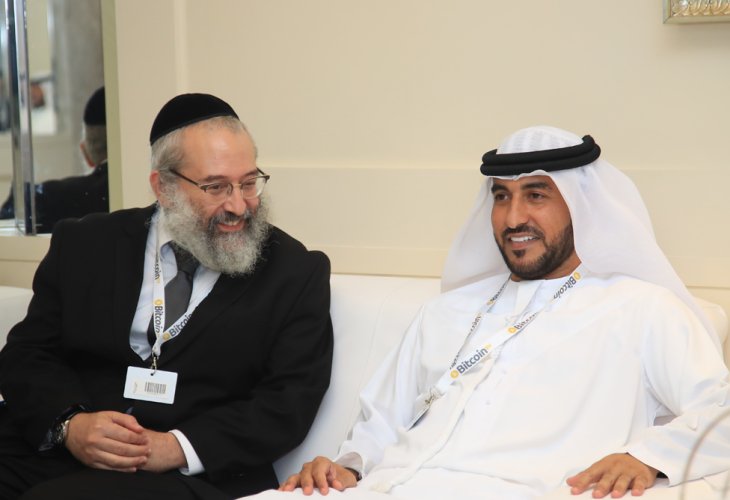 Moshe Shapoff and Sheikh Ahmad bin Faisal
Moshe Shapoff and Sheikh Ahmad bin FaisalWhat does His Highness Sheikh Ahmad bin Faisal, a prince from the oldest royal family, Al Qasimi, in the United Arab Emirates, have in common with Moshe Shapoff, a distinguished Karlin Hasid residing in the Givat Ze'ev neighborhood near Jerusalem?
If you had asked Shapoff a few months ago, he likely would have said he had no idea who His Highness the Sheikh was. There seemed to be no reason for their paths to cross. But life’s reality, stranger than fiction, led to an unexpected connection.
Shapoff, as a businessman attending meetings around the world, arrived a few months ago at an important conference in Dubai, where representatives from major royal families also participated. Shapoff notes that he hesitated whether to attend in full Hasidic attire or not. "I realized I would be the only one dressed like this, and didn't know how they would react," he recalls. "It's a dilemma that often accompanies me when I come to meetings worldwide. These are very important business meetings, with large sums of money at stake. I always wonder if I should draw people's attention with my attire or blend in."
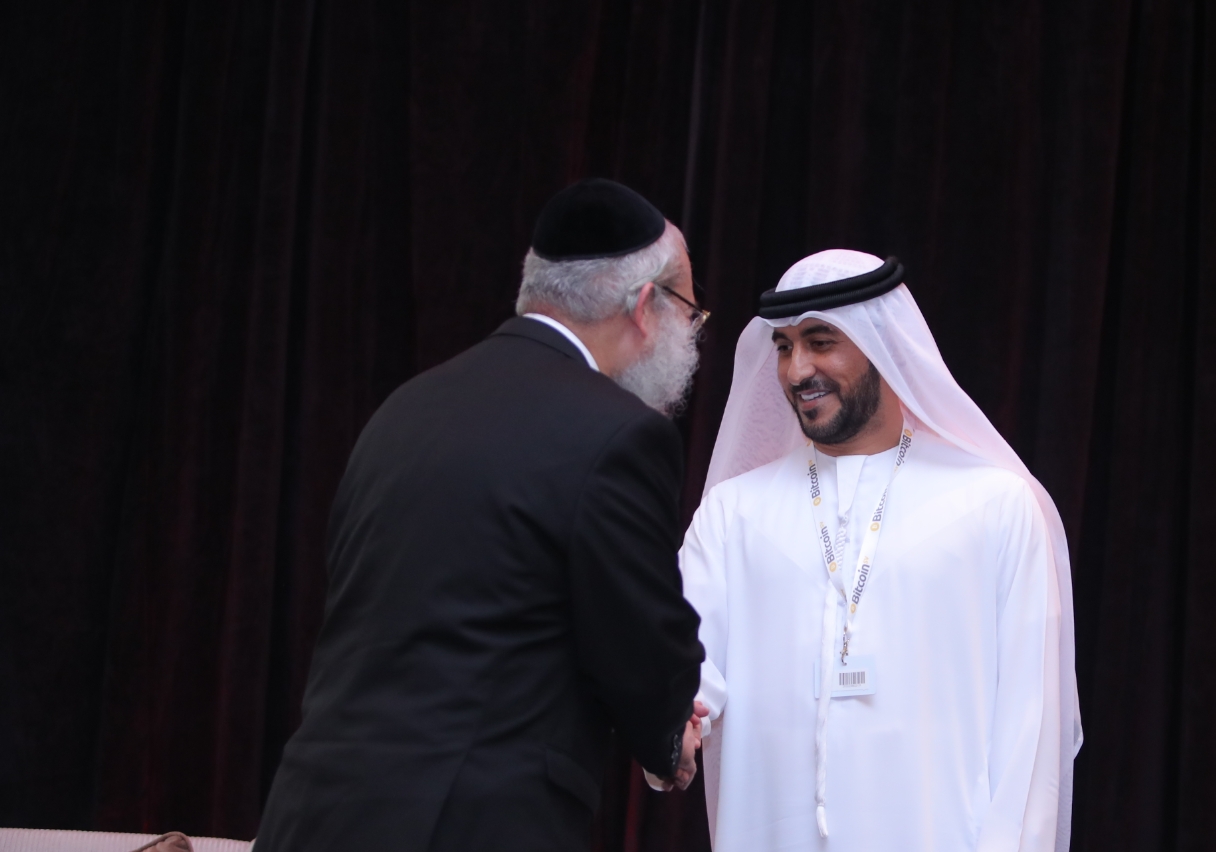
Meanwhile, as he points out, the conclusion was always clear - to remain in full Jewish attire. "I have never been ashamed of my Jewish clothing," he emphasizes. "In my work, I traveled to most of the world, including hostile countries, but I always made sure to wear a kippah and my Hasidic hat. I see it as part of my identity, and I am proud of being Jewish."
This was the case in Dubai too. But Moshe did not anticipate that relatives of His Majesty the Sheikh would eventually approach him and inform him that the Sheikh wished to meet him. Nor did he imagine that photos from this meeting would spread worldwide, making him more famous than any Israeli diplomat overnight.
"Sanctifying Hashem's Name"
When talking to Shapoff, he emphasizes repeatedly that he is a simple man. "I never sought headlines or photos, I never appeared in newspapers or made my voice heard to too many people," he explains. "Perhaps that is why this exposure is so difficult for me, and the fact that my picture is now all over the Arab world, and not only there."
Yet you agree to be interviewed and discuss it...
"Precisely, because I am Jewish, and I feel I have the opportunity to greatly sanctify Hashem's name. I believe this is an important message for all of us - some people merit studying in a kollel all day, which brings great pleasure to Hashem, but there are also those like me who enter the business world. What I want to demonstrate here is that even in business, you can serve Hashem and sanctify His name from that place."
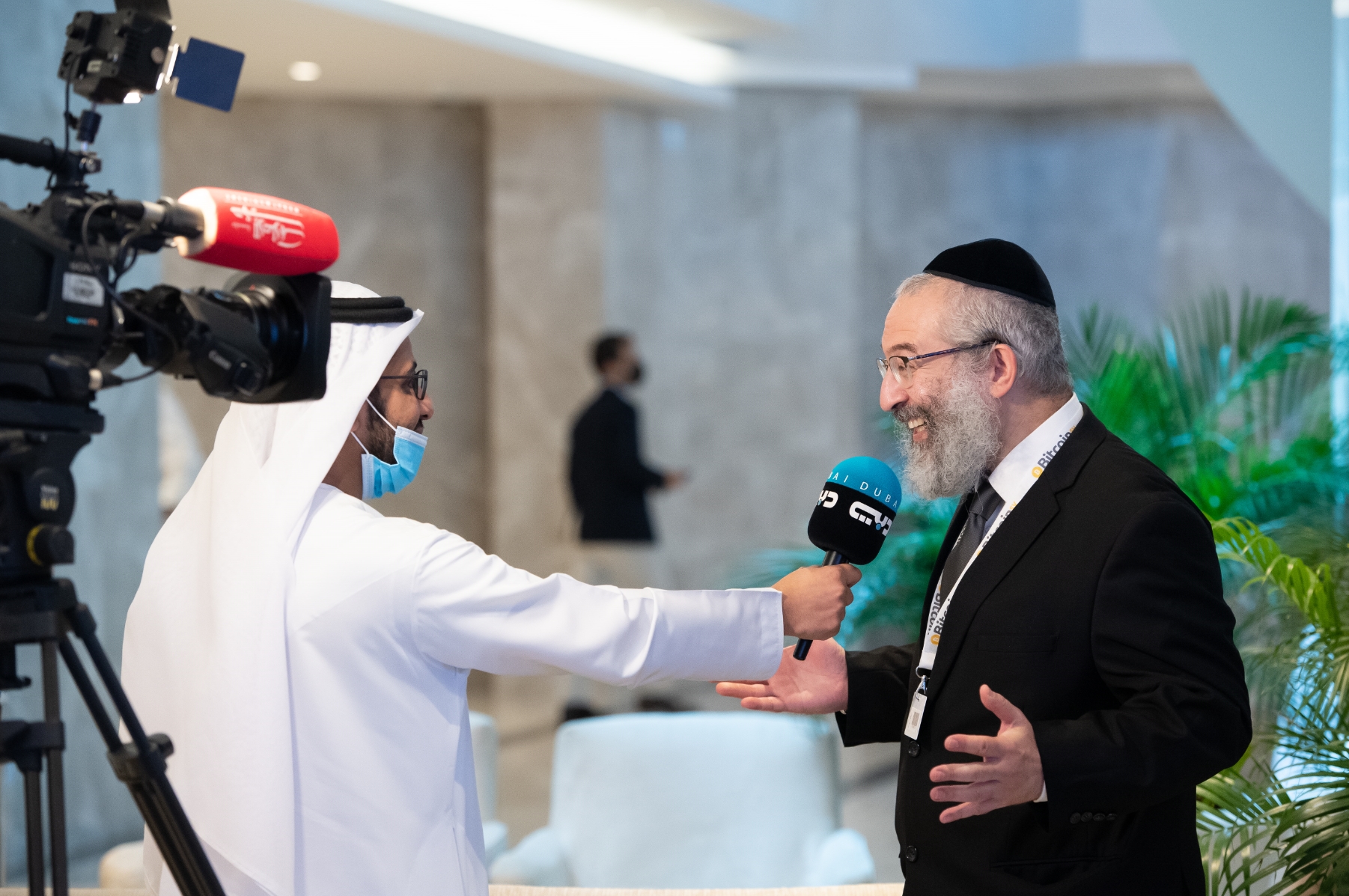
Shapoff is 51, born in the U.S., and came to Israel as a yeshiva student to study at the 'Torah Or' Yeshiva under Rabbi Pinchas Scheinberg, may his memory be blessed. "I had a very close connection with Rabbi Scheinberg for many years," he notes nostalgically. "After my marriage," he adds, "my wife and I lived briefly on a mission in Ukraine, where we engaged in outreach. Later, we made aliyah, and I studied in a kollel before entering the business world."
He now works for 'TR Wealth Management' - an American fund specializing in asset gathering, managed by Terrel Ross from Woodmere, New York. Part of his work involves meeting wealthy individuals worldwide, mainly interested in large investments. "To present them our proposals, we occasionally participate in small, exclusive conferences known as 'investment summits,' where we systematically offer our business proposals."
These events take place worldwide, but recently conferences have convened in Dubai and Monaco, attracting businesspeople and celebrities. "The first time I went to Dubai was almost two years ago," Moshe recounts. "Then, the agreement with Israel hadn't been signed yet, and I couldn't fly there directly. When I arrived, I was quite an anomaly."
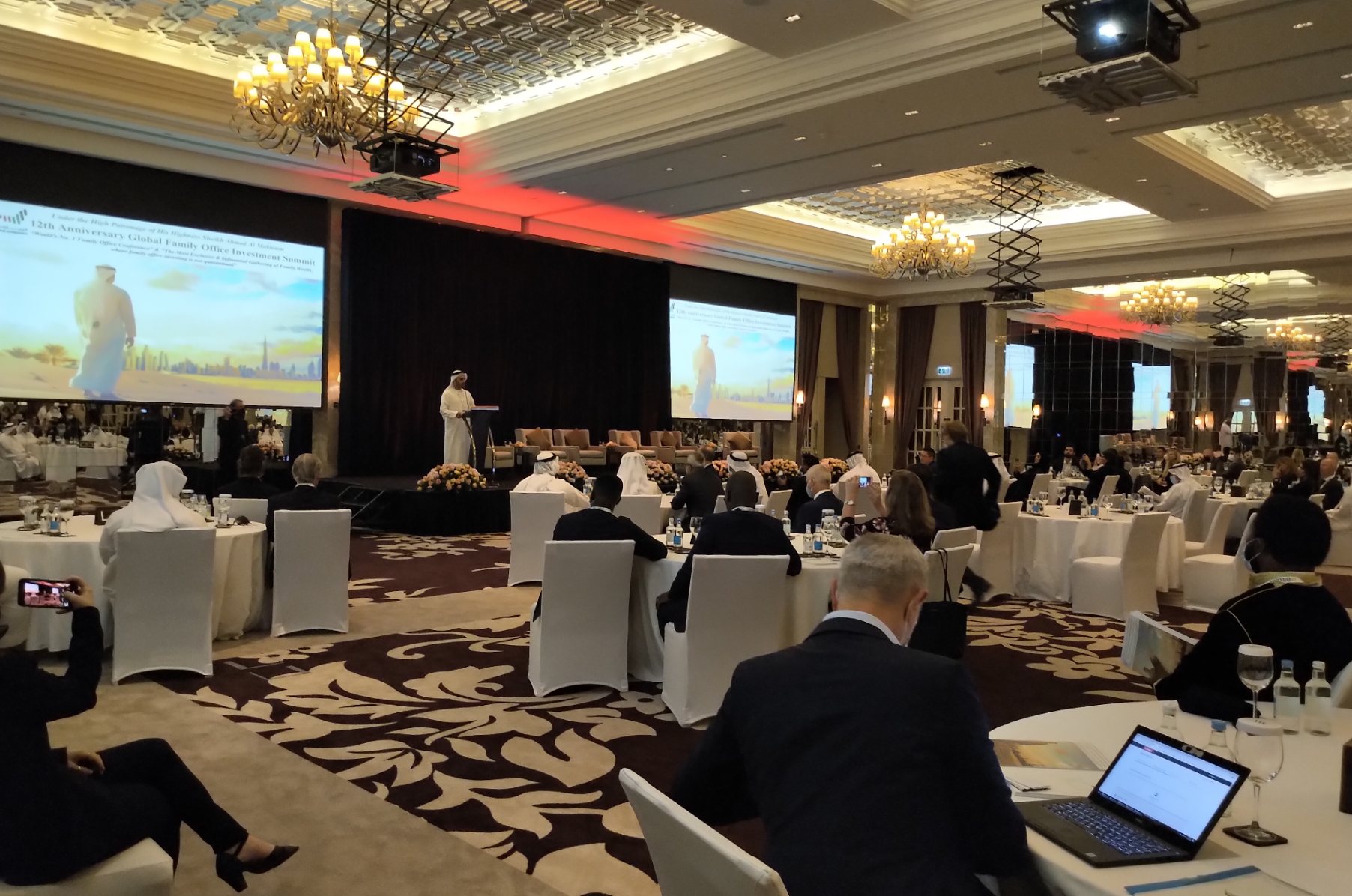
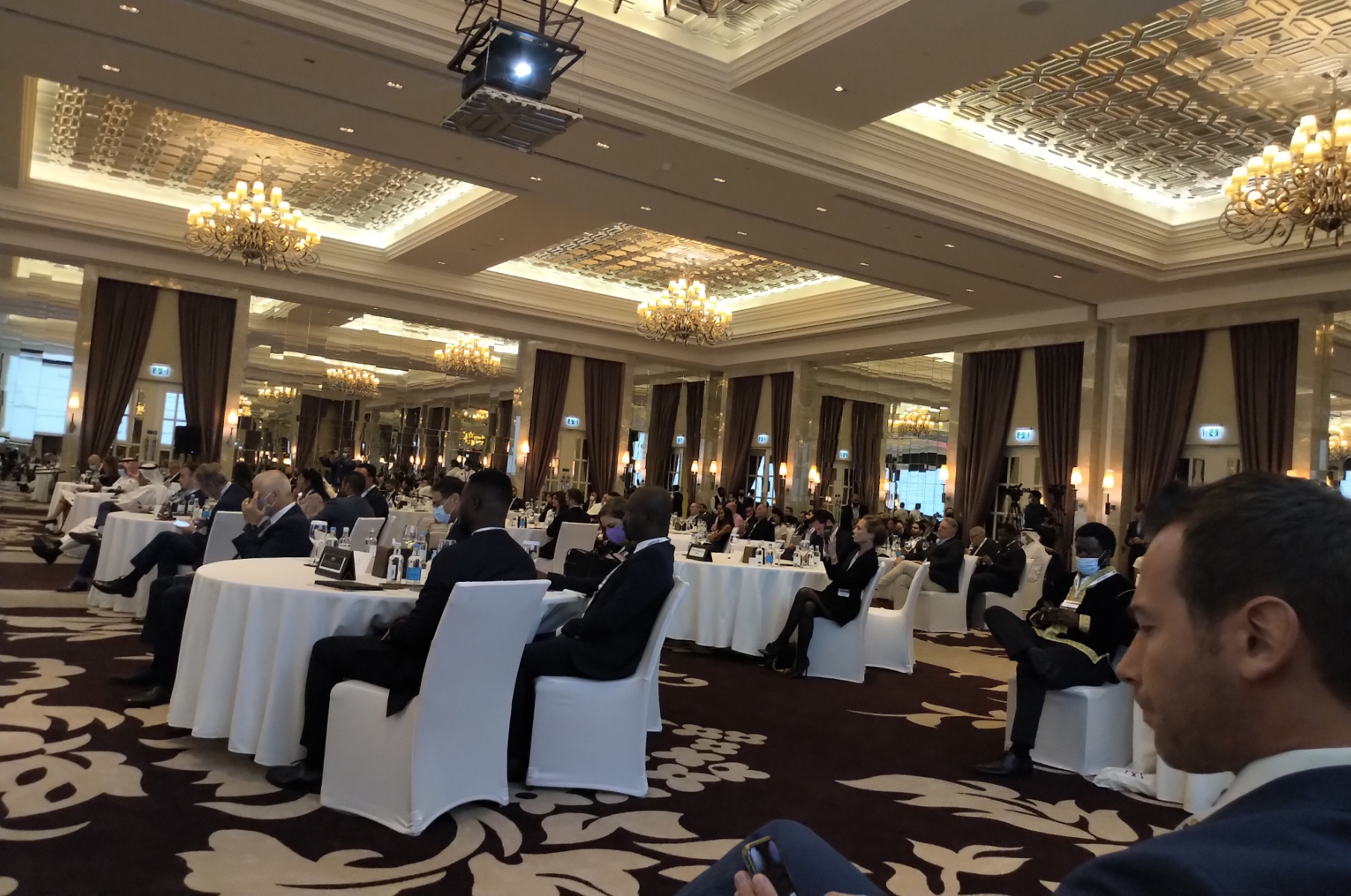
Were you not afraid?
"There were a few fears, but as soon as I arrived at the airport, an officer shook my hand and announced: 'Hello, welcome.' At that moment, I began to understand the great miracle in Dubai - although considered an Arab country, there is no sense of hostility at all. At least not felt outwardly. Even then, when there were no Israelis, I felt very free to walk the streets, even late at night. It felt safer than Brooklyn in New York, where I feel somewhat anxious walking at night."
An interesting experience awaited him upon returning from that trip, on the way to Israel. "I boarded a flight from Dubai to Istanbul," Moshe says, "the plane was full of Arabs, and you can imagine who was there... At some point, I needed to pray Shacharit and of course wear tefillin. I didn't know what to do, realizing if I just took out the tefillin, I'd become, at best, a spectacle, at worst, they'd show me out... I was very hesitant. Eventually, I had no choice. I approached the flight attendant, a Muslim herself, and told her I wanted to pray and didn't know where. To my surprise, she led me to the back of the plane, where they arrange food carts, closed the area from all sides, and informed me: 'You can pray here.' I explained that the prayer could be long, but she promised: 'I'll stand outside and ensure no one enters.' In the end, I prayed comfortably for 45 minutes. It was incredible - a plane full of Arabs, and no one disturbed me."
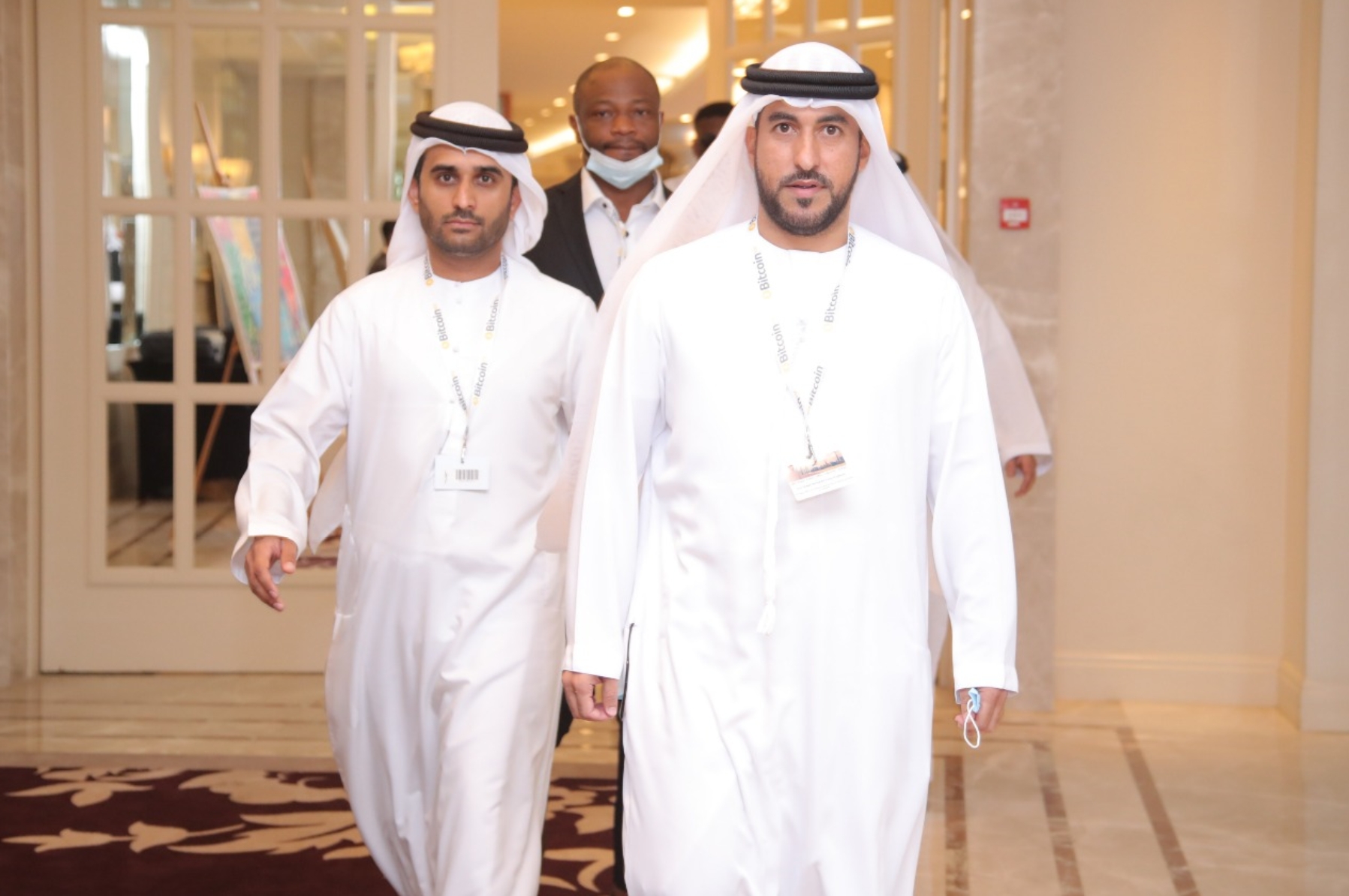
But the next trips to Dubai were much simpler, due to the normalization agreement with Israel. "As I said - there was no hostility before, but now while strolling the streets, you can feel the residents' willingness to build connections. They constantly stop you and wish you: 'Hello,' 'Welcome,' and even say: 'We are happy you are here.' There is a real sense of respect for Israelis."
Nonetheless, Moshe personally finds it hard to connect to the place. "It might sound funny since I travel a lot, but when I see the many Israelis coming to tour Dubai, I truly think there are much more beautiful and interesting places to visit in Israel. It's true there's something exciting about visiting an area that was once forbidden, but beyond that – there's really nothing much to look for here," he says candidly.
However, for businesspeople, there is a lot to do in Dubai. "Dubai doesn't just have tall, beautiful buildings but also is a hub for business. It's not only about forming ties with the UAE but with businesspeople from all over the world who come there. Although connections can't be made on a whim and you need to know how to do it, once trust is established, you can achieve very good results."
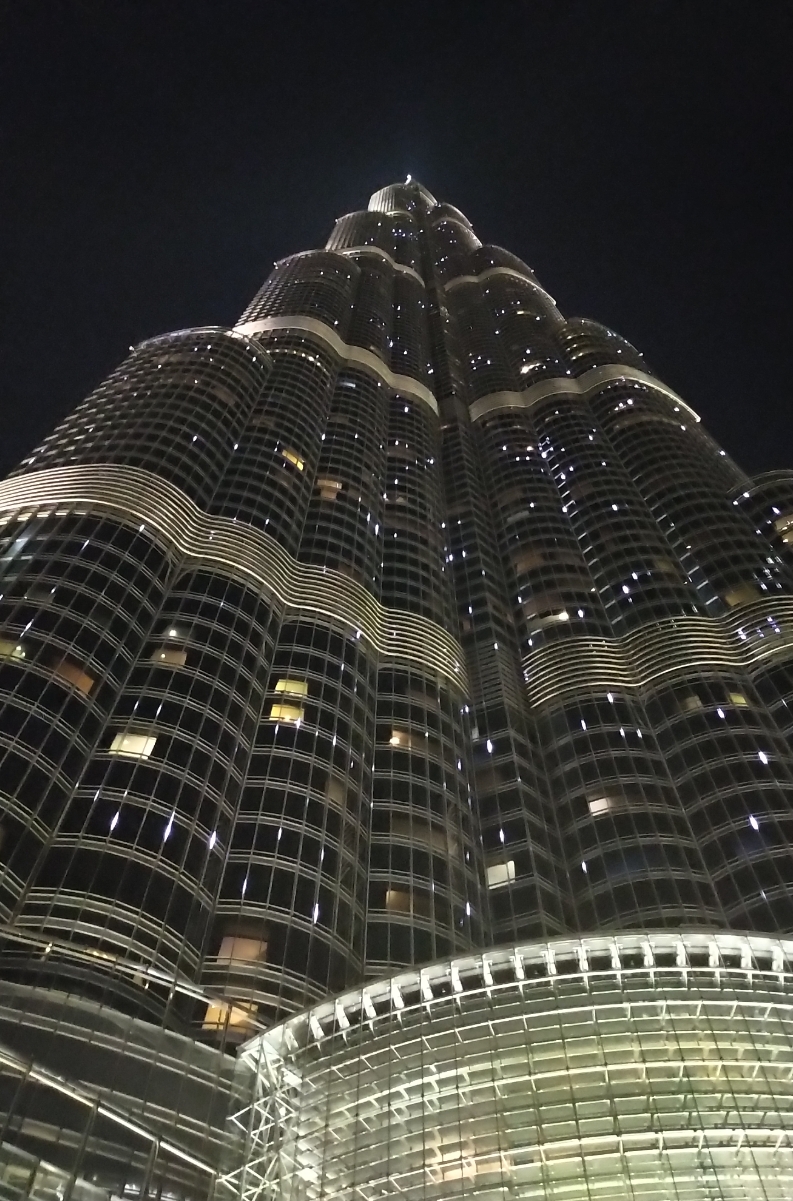
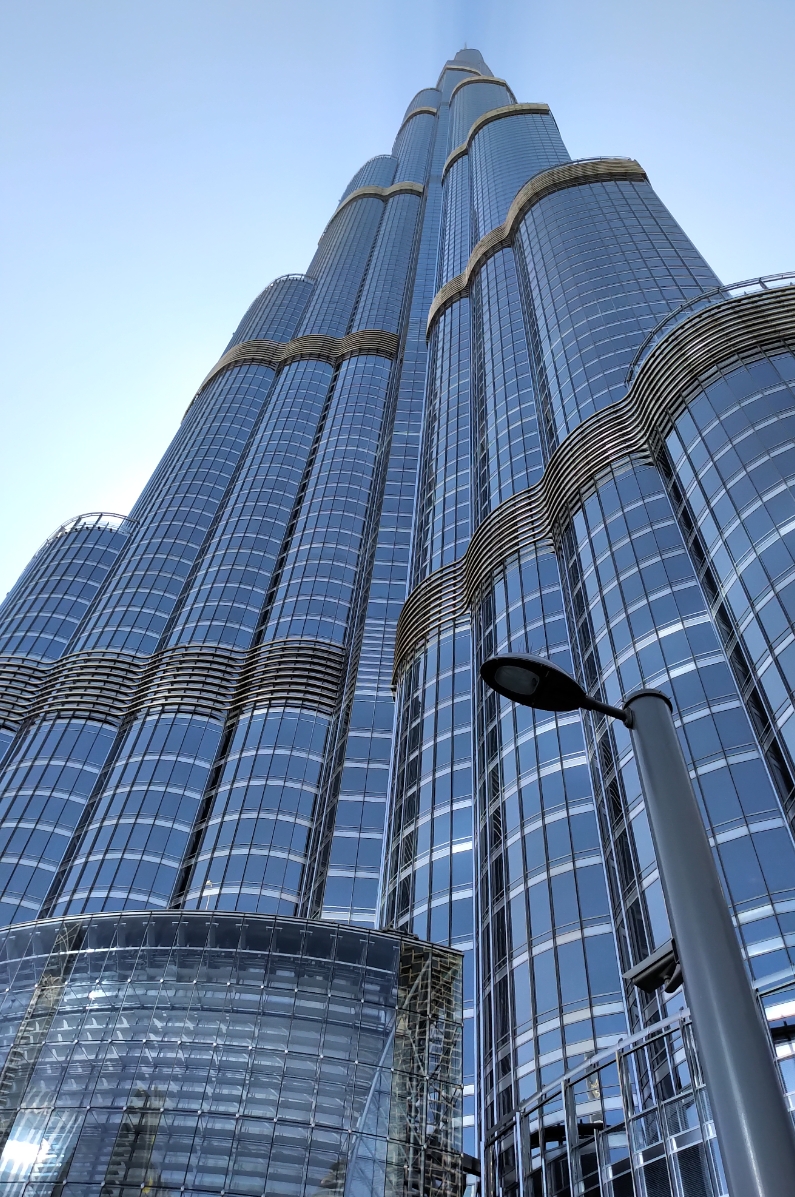
Do you communicate with the locals in English?
"Yes, everyone there speaks English very well. It's not like Israel, where Israelis barely speak English. Over there, they invest in it from a young age at school. You will hardly find someone who doesn't speak English fluently."
Have you invited your acquaintances from Dubai to visit Israel?
"Yes, I actually invited delegations from Dubai to visit Israel, and recently, I discussed it with the rabbi of the Western Wall, who expressed willingness to help. However, this visit will be in the future, as it's currently difficult to travel between countries due to COVID-19."
An Exceptional Gift
Still, how do you explain the special bond forming between you and the Sheikh?
Moshe pauses for a moment, then responds honestly: "I really don't know. There was a great divine intervention here. I have no other explanation. I was also very surprised when they approached me at the end of the conference and said the Sheikh wanted to talk to me, but of course, I did not refuse."
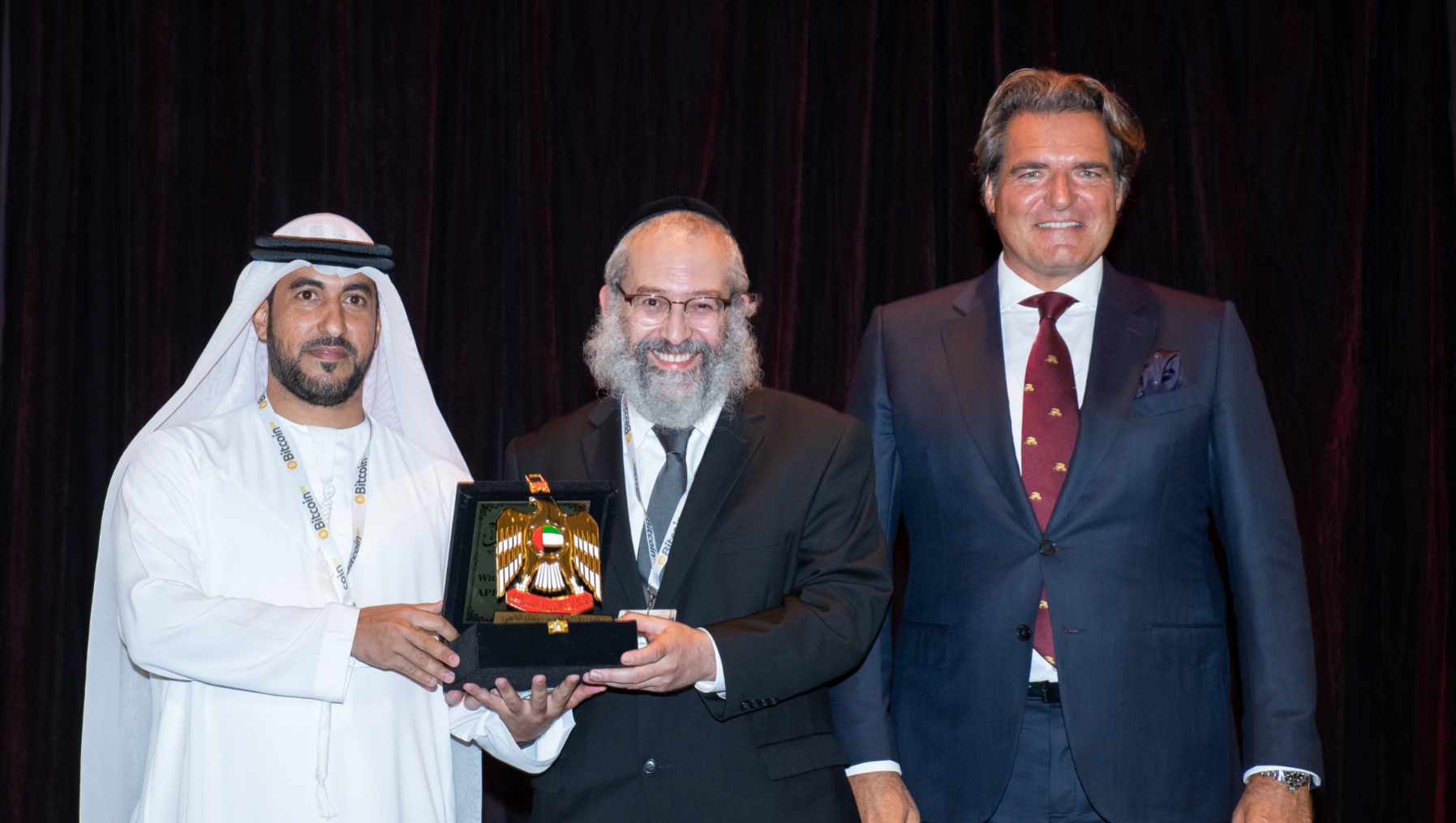
What was in that meeting? What did you discuss?
"To be honest, he didn't talk much, mostly I was the one talking. I tried to ask him what he thought about the peace between Israel and the UAE, and he told me he was very happy about the agreement. I then brought up a few more topics, and it was very interesting to hear his opinion. Throughout the conversation, we were dazzled by camera flashes, and I felt how I was being documented by so many media outlets. I thought to myself how hard it must be to be a prime minister in such a situation, where you have to conduct conversations under so many watchful eyes and yet focus and think. "Throughout the conversation, I was constantly looking into the Sheikh's eyes," Shapoff adds, "and the truth is that I saw a certain humility in them. A kind of modesty."
Shapoff went on his way, but it didn't end there, as the next day, he received an exciting message: the Sheikh wanted to meet him again to give him a royal award at a special ceremony. He was also emphasized that the decision was made because the Sheikh greatly enjoyed the conversation with him.
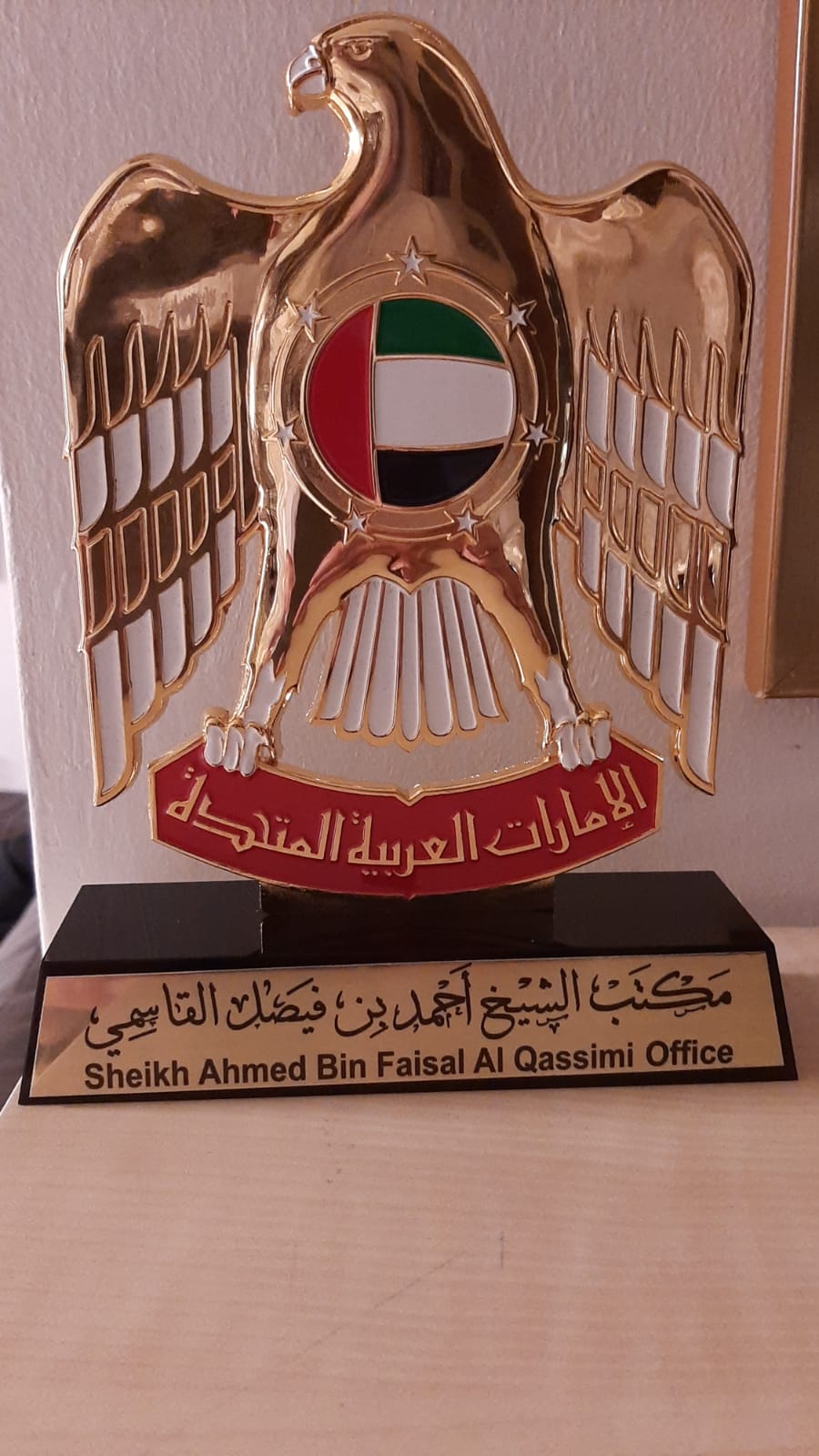 The award Moshe Shapoff received
The award Moshe Shapoff received"I arrived at the evening ceremony, and suddenly found that my name was announced in the hall, and I was asked to approach the stage. Again, I experienced the same sensation as in the meeting – I extended my hand for a handshake, and all the cameras clicked around me. Luckily, a bit earlier, I thought that it would be good for me to give the Sheikh a gift. When consulting with friends who understood the matter, they recommended I give him a hand-washing cup. When I arrived in Dubai, I had a stock of such cups that I was asked to deliver to the Jewish community, and exactly one spare cup was left. I presented this gift to the Sheikh, along with an explanation of the cup's significance in Judaism, and he was very impressed."
* * *
A few weeks have passed since that extraordinary encounter. These days, Shapoff is in Israel, but he continues to receive greetings from people who heard about him and saw him. But the most interesting case that reached his ears was that of a Foreign Ministry worker. The worker came to meet the Sheikh, and the Sheikh, realizing he was Israeli, wondered aloud: "Why don't you wear a kippah, like my friend Moshe?"
"The worker who told me about it said he was very embarrassed, but for me, it was actually a great compliment. It illustrated to me how, when we respect ourselves and are proud of who we are, the people around us know how to respect that. Reality proves it."

